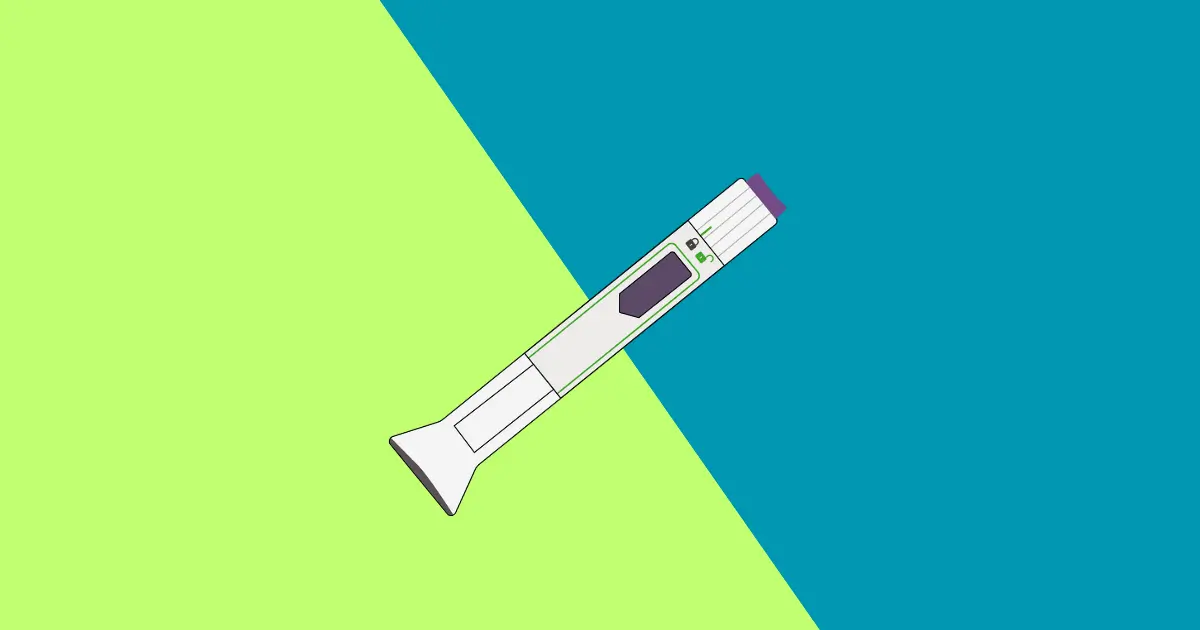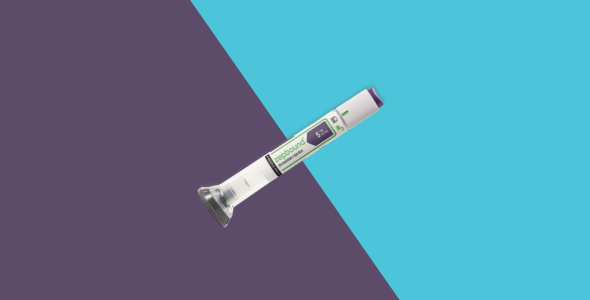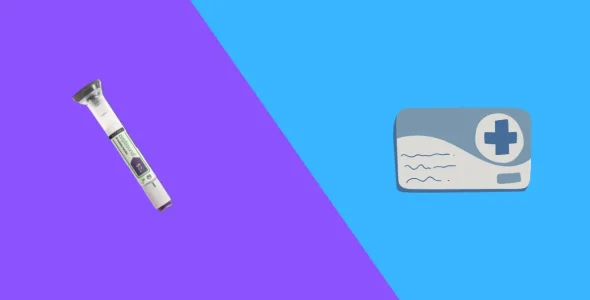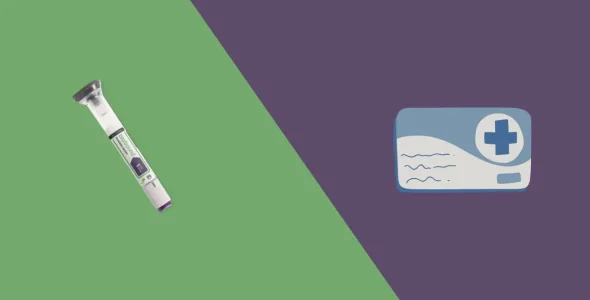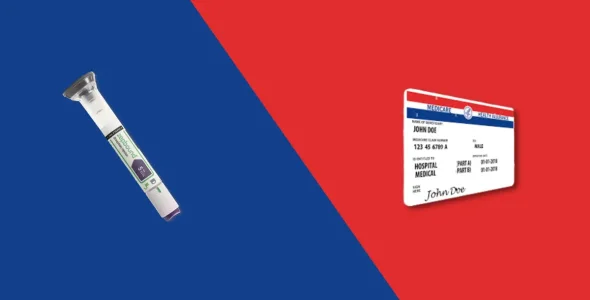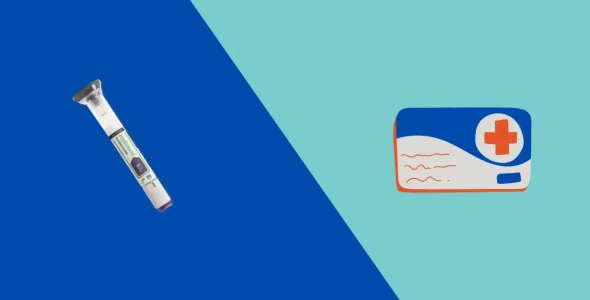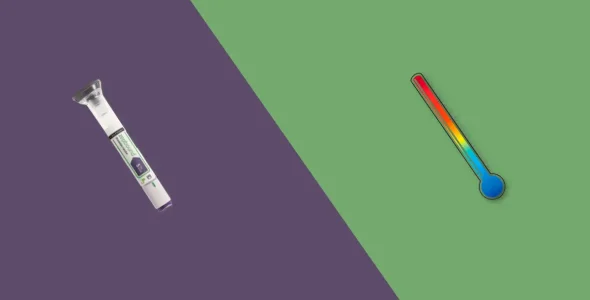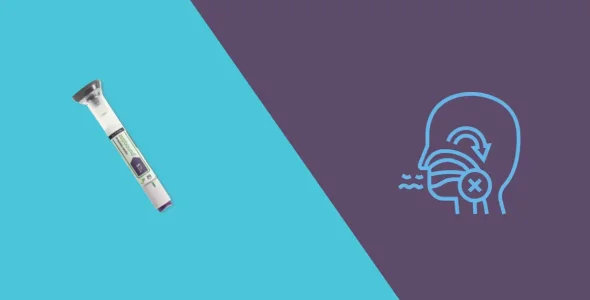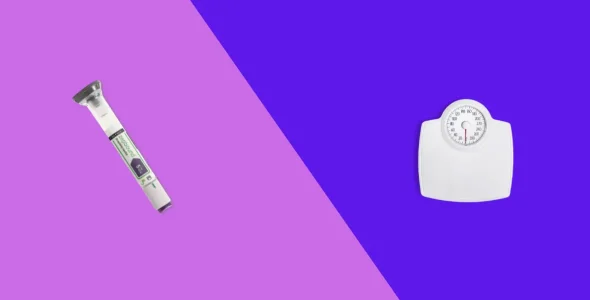How does Zepbound work for weight loss? Ultimate Guide
Key highlights
- Zepbound (tirzepatide) is an FDA-approved medication for weight loss and mild to moderate obstructive sleep apnea in adults with obesity or adults who are overweight if they have at least one condition caused or worsened by excessive fat.
- Zepbound acts on GLP-1 and GIP receptors to reduce appetite, improve metabolism, and promote weight loss.
- GLP-1 and GIP are hormones that regulate metabolism and blood sugar. Agonists of their receptors lower appetite, increase insulin release and act on different body organs to improve weight loss.
- Zepbound is administered once a week. It is provided in a single-use vial and comes in six different dose options: 2.5 mg, 5 mg, 7.5 mg, 10 mg, 12.5 mg, and 15 mg.
- Stopping to take Zepbound can cause people to regain the weight they lost. The medication is intended for long-term use.
Zepbound is a new once-weekly injectable medication for chronic weight management and obstructive sleep apnea. The first double-action peptide approved for obesity by the U.S. Food and Drug Administration (FDA) for ages 18 and above, Zepbound has a mechanism that sets it apart from other drugs in the weight loss market. It is a combined agonist of the glucose-dependent insulinotropic polypeptide (GIP) and glucagon-like peptide-1 (GLP-1) receptors.
This article covers what Zepbound is, how it exerts its actions, what its side effects are, and if it is the right weight loss drug for you. Zepbound not only sheds your extra pounds fast but also reverses metabolic disruptions and undoes the harm that obesity has done to your body with minimal side effects. By understanding Zepbound’s dual action at GIP and GLP-1 receptors, you will be able to appreciate its benefits that extend beyond weight loss.
What is Zepbound?
Manufactured by Eli Lilly, Zepbound is the brand name of tirzepatide, a GIP and GLP-1 receptor agonist. In 2023, it became the first GIP and GLP-1 receptor agonist to receive FDA approval for treating obesity and its complications in adults over 18 when combined with a reduced-calorie diet and increased physical activity. In combination with diet and exercise, it’s FDA-approved for:
- Patients with a body mass index (BMI) of 30 or more who are classified as obese.
- Patients with a BMI of 27 or more who are classified as overweight, with at least one weight-related condition, such as diabetes, hypertension, hypercholesterolemia, or obstructive sleep apnea.
- Patients with moderate to severe obstructive sleep apnea (OSA) and obesity.
Zepbound acts on the GIP and GLP-1 receptors. GIP is a hormone that improves your ability to use energy stored as body fat through secretion. Meanwhile, GLP-1 is a hormone that suppresses your hunger, makes you feel full faster, and reduces the harmful effects of obesity on your heart. Zepbound’s synergistic action on both receptors makes it more effective at weight loss than other GLP-1 receptor agonists.
How Zepbound works for weight loss
The SURMOUNT-1 trial shows that Zepbound provides long-lasting weight management. Its dual action on GIP and GLP-1 receptors has proven to be exponentially more effective than placebo. According to the study, 91% of the individuals taking 15 mg of Zepbound were able to lose 5% or more of their body weight, in comparison to just 35% of individuals with placebo. Zepbound achieves these results through a variety of mechanisms:
1. Appetite suppression
Zepbound activates GLP-1 receptors in your brain, specifically your hypothalamus’s arcuate and paraventricular nuclei. These parts of your brain control your hunger. Their activation decreases the release of hunger-stimulating neuropeptides and increases the release of hunger-suppressing neuropeptides. As a result, your appetite gets suppressed, and you feel fuller for a longer time when you take Zepbound.
2. Enhances insulin secretion
After a carbohydrate-rich meal, GIP stimulates the pancreas to produce insulin. Insulin is a hormone that regulates the levels of glucose in the bloodstream. GIP also improves insulin sensitivity, which is the ability of cells to respond to the action of insulin. As a result, they take up glucose more readily.
As an agonist of the GLP-1 receptors, Zepbound reinforces this action. It reduces and stabilizes blood sugar levels, especially after meals. When excessive sugar is not absorbed or converted into fat droplets, it prevents weight gain. Patients using Zepbound don’t feel hunger pangs or indulge in binge eating.
3. Decreased glucagon secretion
Since Zepbound is a GLP-1 agonist, it suppresses glucagon, a hormone that raises blood sugar. Zepbound binds to the GLP-1 receptors in the alpha cells of the pancreas. These cells are responsible for secreting glucagon. Glucagon increases the breakdown of glycogen (a reservoir of stored glucose) into glucose in the liver. Zepbound also reduces the hepatic conversion of glucose into glycogen. All these effects reduce the production of fat in the body, stabilize your blood sugar levels, and promote weight loss.
4. Slows gastric emptying and decreases food intake
GLP-1 reduces the motility of the gut, making food move more slowly from the stomach to the gut. It also acts on the vagus nerve to suppress appetite. Zepbound mimics these actions. This action of Zepbound also reduces the release of digestive enzymes like ghrelin. All of these effects make you feel fuller for long periods.
Dosage and administration
Since Zepbound is a subcutaneous injection, it is administered once weekly into the layer of fat under the skin, just above the muscles. This route of administration allows for slow drug absorption and prolongs its duration of action. As a result, Zepbound undergoes steady, controlled release and only requires convenient weekly administration. It is available in six dosages for subcutaneous use, ranging from 2.5 mg to 15 mg. The starting dose of Zepbound is typically 2.5 mg weekly and the maximum dose is 15 mg weekly.
Zepbound is currently available as injection pens and single-dose vials. The single-dose vials are currently only available in the dosage strengths 2.5 mg and 5 mg.
Zepbound is injected into fat-rich body parts, such as your abdomen, thighs, and upper arms, to make absorption more effective. It is injected at any time on the same day each week. It is recommended to change the injection site to avoid irritating your skin.
Is Zepbound right for me?
Zepbound is a weight loss medication for people aged 18 and over who meet the criteria for which it has been FDA-approved. It is the right choice for you if:
- You have excess weight (have a BMI of 27 or higher) and combatting at least one health condition caused or exacerbated by obesity, e.g., diabetes, hypertension, cholesterolemia (high cholesterol)
- You are obese (have a BMI of 30 or higher)
- You struggle with mild to severe obstructive sleep apnea (OSA) and have obesity
- You can commit to a lifestyle change since Zepbound works best when you pair it with a low-calorie diet and increased exercise
Zepbound side effects
The SURMOUNT-4 clinical trial compared adverse events experienced by individuals taking tirzepatide (the generic name of Zepbound) and a placebo group that was not taking tirzepatide. They noted that 60.3% of participants taking tirzepatide experienced side effects compared to 55.8% of participants from the placebo group, with gastrointestinal problems like diarrhea and nausea affecting 10.7% and 8.1% of the tirzepatide group, respectively. The common side effects of Zepbound include:
- Diarrhea
- Vomiting
- Constipation
- Abdominal pain
- Indigestion
- Injection site reactions
- Feeling tired
- Allergic reactions
- Belching
- Hair loss
- Heartburn
In addition to common side effects, Zepbound can sometimes result in serious adverse events. The SURMOUNT-4 study showed a 3% incidence of severe side effects among participants taking and not taking tirzepatide. Serious side effects of Zepbound include:
- Severe abdominal pain that does not go away
- Kidney problems such as kidney failure
- Gallbladder problems
- Jaundice
- Pancreatitis
- Hypoglycemia or low blood sugar levels
- Diabetic retinopathy
- Depression and suicide ideation
- Increased risk of aspiration during anesthesia and sedation
In addition, Zepbound also carries an increased risk of causing thyroid and endocrine cancer. It is contraindicated for patients with a family history of thyroid cancer and MEN2 Syndrome. It should also be avoided in pregnancy as it can harm your developing fetus.
Always start Zepbound after consulting your healthcare provider. Notify your healthcare provider before starting Zepbound if:
- You are taking medication for diabetes, which can cause abnormally low sugar levels when paired with Zepbound. This can lead to coma and death.
- You are taking oral contraceptive pills. Your birth control may become ineffective, so your provider may change the type of birth control you are taking if you want to start taking Zepbound.
- If you are pregnant and/or are a nursing parent, Zepbound can harm fetuses and small children.
- You or a family member have a history of thyroid or endocrine cancer.
If you experience any side effects, consult your healthcare provider for medical advice.
Zepbound vs. other weight loss medications
Zepbound is the latest addition to a class of injectable weight-loss drugs that act on your receptors to help you lose a significant amount of weight. Its dual action agonism at GLP-1 and GIP receptors sets it apart from other medications because of its greater efficacy.
Even though Zepbound and Mounjaro have the same active ingredient (tirzepatide), Mounjaro is only FDA-approved for improving blood sugar control in patients with type 2 diabetes mellitus.
Ozempic is a prescription drug for type 2 diabetes. Although it is used as an off-label medication in the treatment of obesity, it is not approved by the FDA for weight loss. Another drug, Wegovy, with the same active ingredient as Ozempic, semaglutide, is approved for chronic weight management, but it is more effective for appetite suppression than fat metabolism.
A SARMOUNT-5 clinical trial compared the weight loss effect of Wegovy (semaglutide) and Zepbound (tirzepatide). Zepbound showed 47% greater weight reduction than Wegovy on average.
How to save on Zepbound
Zepbound costs about $1,000 for four prefilled pens, which is a 1-month supply of the medication. However, you can save money if you have commercial or private insurance, as Eli Lilly offers a Zepbound Savings Card for eligible individuals with commercial insurance:
- If your commercial or private insurance covers Zepbound, you only have to pay $25 for a 1-, 2-, or 3- 3-month supply of Zepbound.
- Even if your commercial or private insurance does not have Zepbound coverage, you may still be eligible to pay only $550 for 1-month supply.
Unfortunately, these discounts are unavailable for people with federal or government-funded insurance like Medicare or Medicaid.
Frequently asked questions
How long does it take for Zepbound to work?
People taking Zepbound usually start noticing weight loss around 4 weeks after starting the medication. In a 16.5-month trial, people lost weight throughout this duration, but the highest weight loss was observed within the first 8-9 months of Zepbound use.
Is Zepbound covered by insurance?
Zepbound and most weight loss drugs are typically not covered by most insurance plans, especially public insurance programs like Medicare and Medicaid. Coverage varies by plan so check with your insurance provider for coverage details.
If your commercial insurance plan covers Zepbound, you may be eligible to pay as little as $25 for a 1-month supply of the medication with the Zepbound Savings Card. If your private insurance does not cover Zepbound, the Zepbound Savings Card program may still reduce the cost and allow you to pay around $550 for a 1-month supply of Zepbound.
Without any savings card or insurance, Zepbound costs over $1,000 for a four-week supply.
What are the long-term side effects of Zepbound?
Zepbound has been linked to medullary thyroid cancer and endocrine tumors such as the MEN2 (Multiple endocrine neoplasia syndrome type 2). These studies were done on animals, and the same side effects have not yet been confirmed in humans. Zepbound has also been associated with hair loss and loss of facial fat.
Can Zepbound be used for long-term weight management?
Zepbound has been approved for chronic weight management, which is intended for long-term use. It is essential to discuss your weight loss goals with your healthcare provider before starting and stopping Zepbound, as stopping the medication results in regaining the weight lost during treatment.
Is Zepbound safe for people with pre-existing conditions?
Zepbound is generally considered a safe medication. However, it needs close monitoring when it is taken by patients with certain diseases, such as diabetes and cardiovascular disease, even when its effects reduce their symptoms. Zepbound is contraindicated if you have a thyroid tumor or a family history of thyroid tumor because animal studies have shown the risk of medullary thyroid carcinoma with Zepbound. Do not use Zepbound in pregnancy and during breastfeeding, as it has not been studied in either population yet.
How do I know if Zepbound is working?
The weight loss effects of Zepbound first become noticeable after 4 weeks of use, although the benefits are more significant after you have taken the drug for at least 12 weeks. Early signs that Zepbound is working include a reduced appetite, lower blood sugar levels, and a feeling of fullness or satiety.
How long does Zepbound stay in your system?
Zepbound has a half-life of 5 days. Half-life is the time it takes for the concentration of the drug to reduce by half. Most drugs are washed out of your body after 5 to 6 half-lives. This means Zepbound stays in your system for at least 30 days before it is completely washed out.
How much weight can you lose on Zepbound?
Many studies have shown that taking Zepbound results in significant weight loss, especially compared to other drugs. The SURMOUNT-5 study has revealed that Zepbound is more effective for weight loss than Wegovy. Participants taking Zepbound showed an average weight loss of 20.2% of their baseline body weight after 72 weeks on the medication, while those on Wegovy lost around 13.7% of their baseline body weight. In addition, 32% of the individuals taking Zepbound achieved the milestone of losing 25% of their total body weight, which was significantly higher than the 16% with Wegovy.
Clinical trials
In a 72-week study, Zepbound participants lost considerable weight and experienced improvement in their blood pressure, blood glucose, and cholesterol levels.
- Participants without diabetes lost 15% of their body weight. Those taking 10 mg lost 19.5%, whereas those on 15 mg lost 20.9%. In contrast, the placebo group only lost 3.1%.
- Participants with diabetes who took 10 mg of Zepbound lost an average of 12.8% of their body weight, while those on 15 mg lost 14.7% — the placebo group lost only 3.2%.
How long do you need to take Zepbound?
Weight loss drugs like Zepbound are not short-term solutions. They need to be taken for the long-term to show and maintain their results. According to a clinical trial, adults who used Zepbound for 88 weeks experienced far more weight loss than those who stopped taking the medication after 36 weeks. This shows that continued Zepbound use over an extended period leads to more lasting weight reduction.
Bottom line: is Zepbound right for you?
Zepbound is a weight loss medication that activates the GLP-1 and GIP receptors. It is FDA-approved for weight loss and obstructive sleep apnea in obese and overweight patients with at least one weight-related problem. This medication reduces appetite, slows gastric emptying, and improves insulin levels in your body. Zepbound is an effective medication for chronic weight management, but it works best when it is paired with healthy habits such as a balanced diet, exercise, and increased physical activity.
If you are considering Zepbound for weight loss, consult your healthcare provider to determine if it is the right choice for your medical needs and goals. Zepbound is currently the most effective weight loss drug on the market but whether it’s right for you depends on your personal goals, insurance coverage, tolerance for side effects and other factors. Their personalized advice will ensure that you take the best step forward for your weight management.

